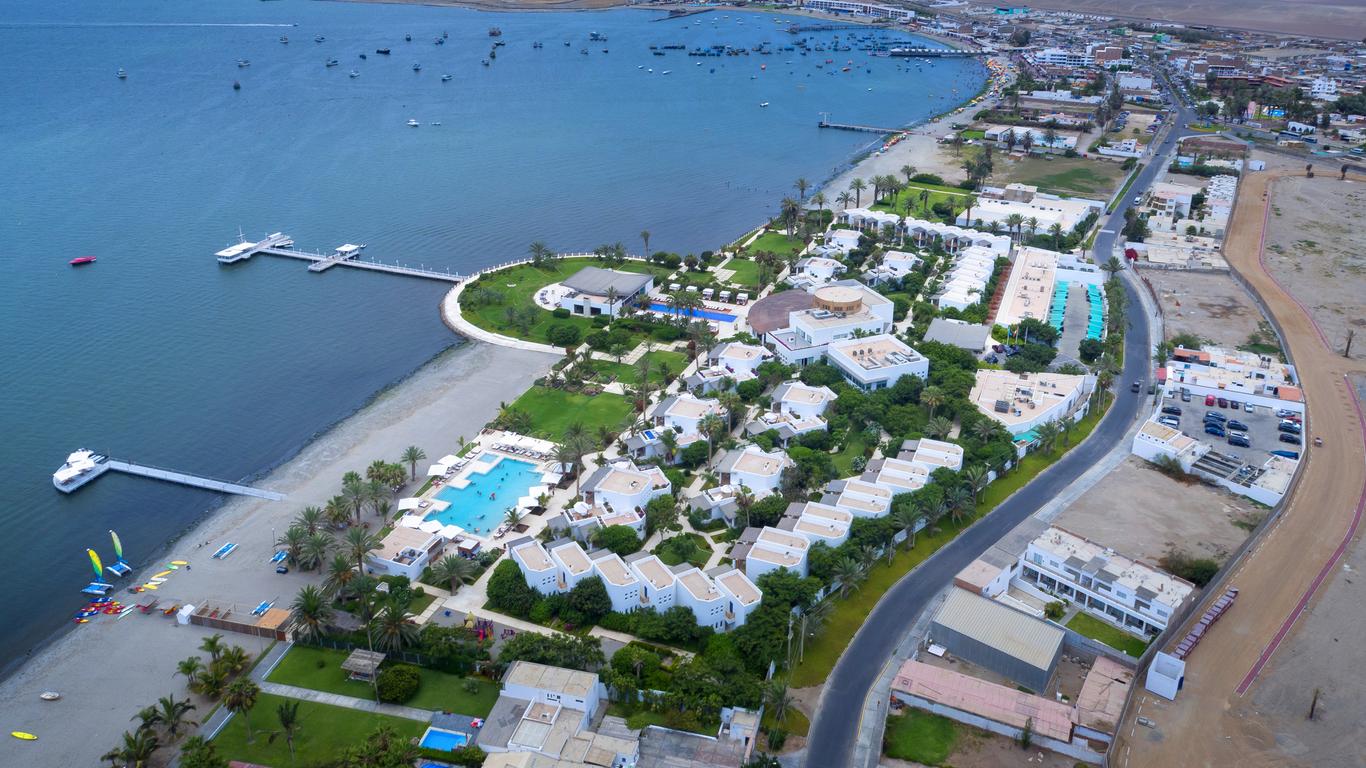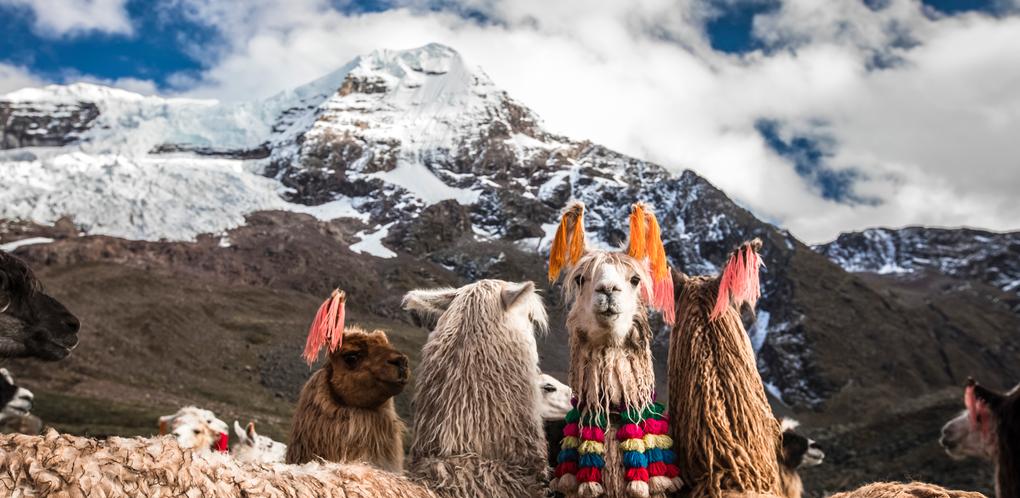
Peru travel guide
Peru Tourism | Peru Guide
You're Going to Love Peru
Peru is a combination of ancient civilizations, archaeology and diverse landscapes consisting of beaches, mountains and cities, such as Lima, the energetic capital, and Cusco, the much older Incan Empire capital city.

What to do in Peru
1. Visit Machu Picchu
Immerse yourself in history with a trip to Machu Picchu and Chan Chan, the once capital of the Chimore Empire.
2. Stay Active
Hike the El Clásico trail in Cañón del Colca or take a trek to the glaciers and lakes of the Ausangate Mountain near Cusco.
3. Enjoy the Local Cuisine
Sample the food – from Patarascha, the seafood dish wrapped in a leaf (banana or bijao) to hot chocolate flavored with honey and chilis.
4. Explore the Natural Wonders of Peru
Venture into the forest with a trip to Manu National Park and see the rich biodiversity of this tropical rainforest with its multiple species of plants, butterflies, birds and mammals.
5. Visit Arequipa
This city in Peru where the sun always shines is steeped in colonial history and is also surrounded by three volcanoes.
When to visit Peru
June to September is the best time to visit Peru, which experiences vast variations in climate from the coast to the mountains. There tends to be less rain during this period, although it may be colder up in the mountains.
How to Get to Peru
Entry Requirements
US, EU and British passport holders can enter Peru without a visa but must have a passport valid for the duration of the stay. Nationals from Canada and Australia do not need a visa and should have a passport valid for six months after departing Peru. A return ticket is necessary.
Plane
The main international airport is the Jorge Chávez International Airport in Lima, which receives international flights from major airlines, including LATAM, the main airline for Peru. Alejandro Velasco Astete International Airport in Cusco is a hub for flights from neighboring South American countries.
Train
The only train service into Peru is from Arica in Chile. The daily journey takes just 1h 30min and runs from Arica to Tacna in the south of Peru.
Bus
The Peru Hop bus company runs a service from Le Paz in neighboring Bolivia, while Andes Transit buses operate the same route. Andes Transit also runs buses between Arica in Chile and Tacna in Peru and will wait for passengers to go through customs and immigration.
Popular airports in Peru
Popular airlines serving Peru
Where to stay in Peru
Lima and Cusco have the broadest range of accommodation in Peru with options ranging from upmarket hotels to more reasonably priced guest houses (hospedajes) and pensiones. Jungle areas provide accommodation from luxury eco-resorts to standard hotels and for the adventurous, hammocks in the forest.
Where to stay in popular areas of Peru
Most booked hotels in Peru
How to Get Around Peru
Public Transportation
In Lima, public transport consists of a network of buses and minibuses as well as a limited metro system. In other cities, buses and taxis are the main form of transport, and these are relatively inexpensive to use.
Trains
Peru Rail is responsible for the trains between main touristic locations, such as Cusco, Machu Picchu and Puno. Ferrocarril Central railways runs a tourist service, twice a month, on one of the highest rail routes in the world between Lima and Huáncayo.
Bus
Buses are the most popular form of travel around Peru and the bus network is extensive. There are luxury journeys on coaches provided by Cruz del Sur, which cost around 187 PEN (56 USD) between Lima and Cusco, and more reasonably priced journeys on Flores from 90 PEN (26 USD).
Plane
Domestic flights are operated by Avianca, LC Perú and LAN airlines and there is a good network between the tourist sites of interest.
The Cost of Living in Peru
All major credit cards (mainly Visa and MasterCard) are accepted in Lima, but this may not be the case outside the city. ATMs are located around the country, and in some places, US dollars can be used. It is always a good idea to have a supply of local currency, especially in more remote areas.
Eating out at a casual restaurant could cost you as little as 10 PEN (3 USD) while a three-course meal for two in a more upmarket restaurant could cost around 60 PEN (18 USD). In a grocery store, a 0.2 gallon of milk will cost 4.51 PEN (1.34 USD) and a dozen eggs around 5.41 PEN (1.61 USD).